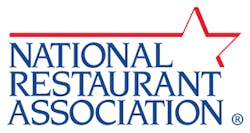The National Restaurant Association (NRA) recently reported that the enforcement of a trans-fat ban in Chelsea, Mass., has been postponed because of several outstanding issues.
The ban, which was expected to go into effect Jan. 1, has been postponed until further notice according to city manager Jay Ash. The board of health will address the situation and take testimony from restaurants and bakeries regarding the ban at its next meeting on Feb. 19.
The National Restaurant Association said it was pleased the board of health would examine the adopted ban and review the testimony of area restaurateurs and foodservice operators before enacting it.
"We are encouraged that the city has decided to pause and allow the industry to provide additional perspective," said Brendan Flanagan, the NRA's vice president of state and local affairs, in a prepared statement.
According to Ash, the board of health may be interested to hear from food establishments about their concerns regarding the ban, such as "the availability or not of substitute ingredients, which could be used to comply with the ban, the performance of products containing substitute ingredients and the impact, if any, compliance with the ban would have on the food establishments themselves."
The current legislation calls for a complete ban of trans fat, also known as partially hydrogenated vegetable oil, in packaged and restaurant foods. To date, other cities have passed and enacted similar bans, but those allow for up to 0.5 grams of trans fat per serving.
The ban, which was approved by the Chelsea Board of Health last year, requires all foodservice establishments, including bakeries, coffee shops, luncheonettes, grills, delis, tea rooms, sandwich shops, bars, roadside stands and catering kitchens, to comply with the law. Vending machines and mobile truck operators also are subject to compliance.
Trans fat, generally used to help extend shelf life and improve texture and taste of certain food products, such as pastries and other baked goods, has been linked to heart disease.





